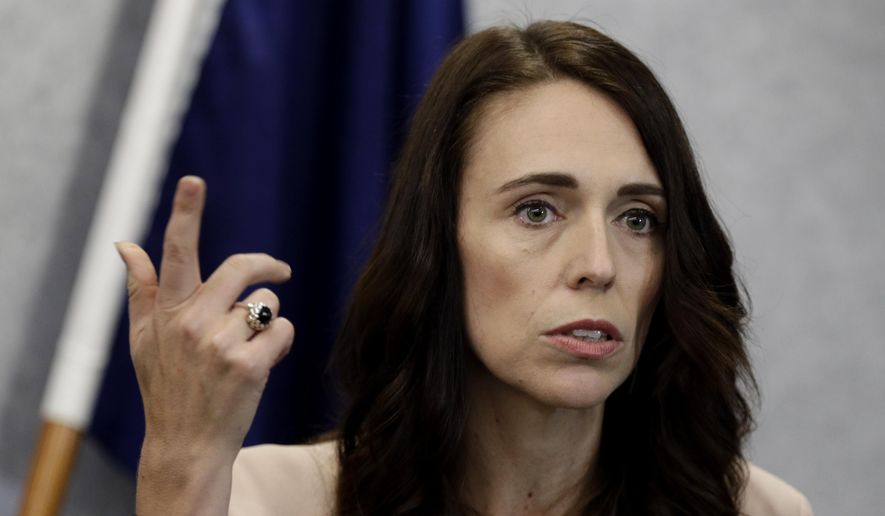Countries around the world condemned President Trump’s plan to suspend U.S. funding for the World Health Organization during the coronavirus pandemic, but there was also some sympathy for the president’s frustration with the U.N. agency’s response to the crisis and its dealings with China.
Amid mounting criticism of WHO from conservatives and Republicans in Congress, Mr. Trump revealed Tuesday he was freezing hundreds of millions of dollars in annual payments to the WHO while U.S. officials review its role in “mismanaging” the coronavirus crisis.
He renewed his attacks Wednesday, targeting again the WHO’s criticisms of his Jan. 31 decision to sharply curtail most travel from China in late January as a way to curb infections.
“They were angry that we did it,” Mr. Trump told reporters in the Rose Garden. “It took them a long time to realize what was going [on].”
Chinese and U.N. officials criticized the move and many countries said they were not ready to follow Washington’s lead in the middle of a pandemic that has now infected more than 2 million people worldwide.
Australian Prime Minister Scott McConnell said he “sympathized” with Mr. Trump’s WHO criticisms, noting that “I’ve made a few of my own.”
But he also told Radio 6PR in an interview Wednesday that the WHO “does a lot of important work, including here in our own region, the Pacific, and we work closely with them. We’re not going to throw the baby out with the bathwater here, but they’re also not immune from criticism and immune from doing things better.”
The WHO’s critics say the agency was slow to recognize the severity of the coronavirus threat, repeatedly gave out misleading information, and failed to press China’s leaders to be more transparent about the origins and early days of the outbreak.
The former leader of Britain’s MI6 foreign intelligence service John Sawers told BBC Radio that “it would be better to hold China responsible for those issues than the WHO. … But that doesn’t excuse [WHO Director-General Tedros Adhanom Ghebreyesus] for failing to stand up for the facts, the data, and making the right demands of China.”
Others took a much sharper tone on Mr. Trump’s action, with many saying it was an effort by Washington to shift the blame for its own shortcomings.
The European Union’s Foreign Policy Chief Josep Borrell tweeted that he “deeply regretted” the U.S. decision “There is no reason justifying this move at a moment when their efforts are needed more than ever.”
“At a time like this when we need to be sharing information and we need to have advice we can rely on, the WHO has provided that,” said New Zealand Prime Minister Jacinda Ardern. “We will continue to support it and continue to make our contributions.”
And Russian Deputy Foreign Minister Sergei Ryabkov told the Tass news agency Wednesday that the move “is an example of a very selfish approach by the U.S. authorities to what is happening in the world as regards the pandemic.”
Mr. Trump said in his announcement the U.S. contributes up to $400 million while countries such as China, where the outbreak began, contribute just a fraction of that. The WHO is financed through both assessed and voluntary contributions, according to the agency’s website.
The U.S. assessed contribution for 2020 is $120 million, representing 22% of the WHO’s core budget for the year, according to data from USAID. In 2018, the U.S.’ voluntary budget was nearly double its assessed contribution at $220 million, a senior Democratic aide told The Washington Times.
While assessed contributions have not yet been allocated in full as financial payments tend to be doled out over time, the executive branch has more control over voluntary contributions so it is unlikely the administration would have to notify congress to pull this funding.
The WHO, based in Switzerland, is considered the world leader in public health emergencies, such as the Ebola outbreak in the Democratic Republic of Congo that has been nearly stamped out amid violent conditions.
Mr. Trump earlier this year praised Chinese President Xi Jinping’s handling of the outbreak that began in Wuhan, but has stepped up his attacks on Beijing as criticism has mounted in the U.S. over his own administration’s record in preparing for the pandemic.
Chinese Foreign Ministry spokesman Zhao Lijian told reporters in Beijing on Wednesday that Mr. Trump’s funding freeze “weakens the WHO’s capability and harms international cooperation.”
The state-controlled Global Times said in a stinging editorial that “Washington’s attempts to shift the blame onto other countries and international organizations are doomed to fail.”
“Its own mistakes cannot be more obvious, and buck-passing will only drive people to further investigate and define its responsibility for improper handling of the outbreak,” the news outlet said.
WHO Director-General Tedros expressed “regret” of the U.S. move, but he said that his organization “is reviewing the impact of our work of any withdrawal of U.S. funding and we will work with partners to fill any gaps and ensure our work continues uninterrupted.”
The number of global coronavirus cases on Wednesday surpassed 2 million. It took 83 days to reach 1 million and just 14 days to double.
• Tom Howell Jr. contributed to this story.
• Lauren Toms can be reached at lmeier@washingtontimes.com.




Please read our comment policy before commenting.